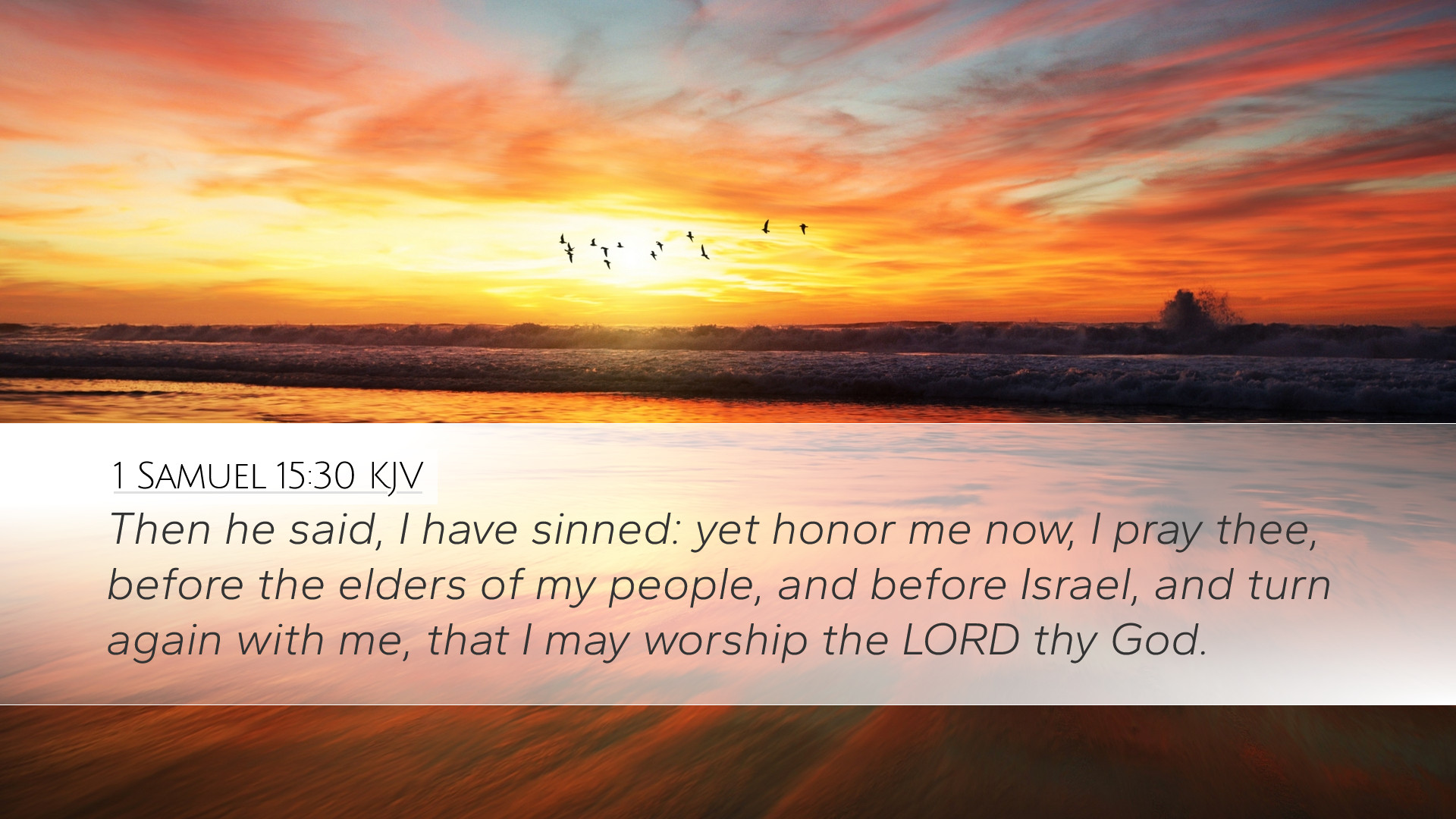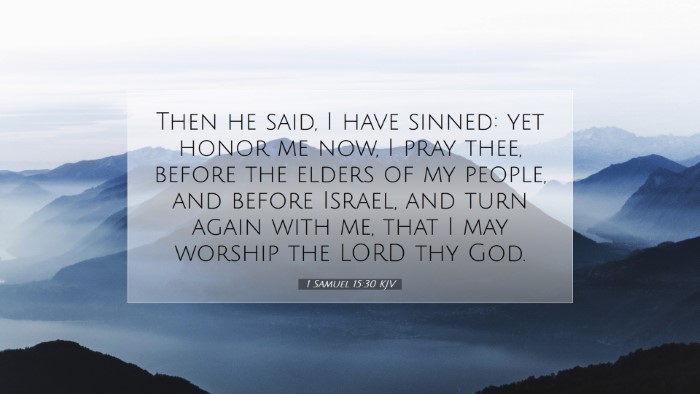Bible Commentary on 1 Samuel 15:30
Verse Context
1 Samuel 15:30 states: "Then he said, 'I have sinned; yet honor me now before the elders of my people and before Israel, and return with me that I may bow before the Lord your God.'" This verse captures a moment of profound moral and spiritual significance in the narrative of King Saul, highlighting themes of sin, leadership, and the pursuit of honor.
Overview and Theological Implications
Within the framework of biblical narratives, this verse encapsulates Saul's complex relationship with God, authority, and his desire for redemption even in the face of failure. As we delve into the commentaries of esteemed scholars such as Matthew Henry, Albert Barnes, and Adam Clarke, we can draw meaningful insights that resonate with the theological struggles of leaders across time.
Matthew Henry's Insights
Matthew Henry emphasizes Saul's admission of sin as a crucial turning point. He notes:
- The Admittance of Guilt: Saul's declaration, "I have sinned," suggests a rare instance of accountability from a leader who had previously deflected criticism. Henry posits that true leadership necessitates humility and acknowledgment of wrongdoing.
- Desire for Honor: Even in his confession, Saul's primary concern appears to be his reputation among the elders and the people. Henry critiques this, suggesting that while it is natural to seek honor, the priority should be a genuine relationship with God over societal esteem.
Albert Barnes' Reflections
Albert Barnes provides a complementary perspective, focusing on the psychological and social dynamics at play:
- Public versus Private Repentance: Barnes underscores the tension between Saul's private acknowledgment of sin and his public plea for honor. This highlights an internal conflict prevalent in leaders who often struggle with public perception.
- Returning to Worship: The phrase "return with me" indicates Saul's desire for restoration not just in his standing, but in his relationship with God. Barnes points out that true repentance must lead to a change in behavior and not merely a restoration of image.
Adam Clarke's Analysis
Adam Clarke expands on the implications of Saul's plea for esteem:
- Manipulation of Perception: Clarke suggests that Saul's desire to be honored before the people represents a form of manipulation. Instead of seeking genuine forgiveness, he appears more invested in salvaging his public persona, a theme that resonates with contemporary issues of authenticity in leadership.
- Spiritual Leadership: Clarke argues that true leadership is rooted in spiritual integrity. Saul's request to bow "before the Lord your God" shows an acknowledgment of God's authority but comes from a place marked more by fear of loss than sincere worship.
Practical Applications for Modern Leaders
The insights gleaned from these commentaries bear significant implications for pastors and leaders today:
- Emphasizing Genuine Repentance: Leaders are encouraged to pursue authentic repentance rather than mere public acknowledgment. The process must involve deep personal conviction and a commitment to lead by example.
- Prioritizing God over Image: The desire for honor can distract from the greater call to serve God faithfully. Leaders must navigate the balance between their public responsibilities and their private commitments to God.
- Understanding the Weight of Authority: Pastors and spiritual leaders must recognize that their authority comes with the responsibility of leading with integrity and humility. This requires ongoing self-examination and a willingness to submit to God’s direction.
Conclusion
In conclusion, 1 Samuel 15:30 serves as a powerful reminder of the dynamics of sin, repentance, and leadership. Drawing from historical and theological insights, leaders today are called to embody a deeper understanding of their relationship with God. By reflecting on the lessons from Saul's experience, contemporary shepherds of faith can aspire to lead in a manner that honors both God and their communities.


